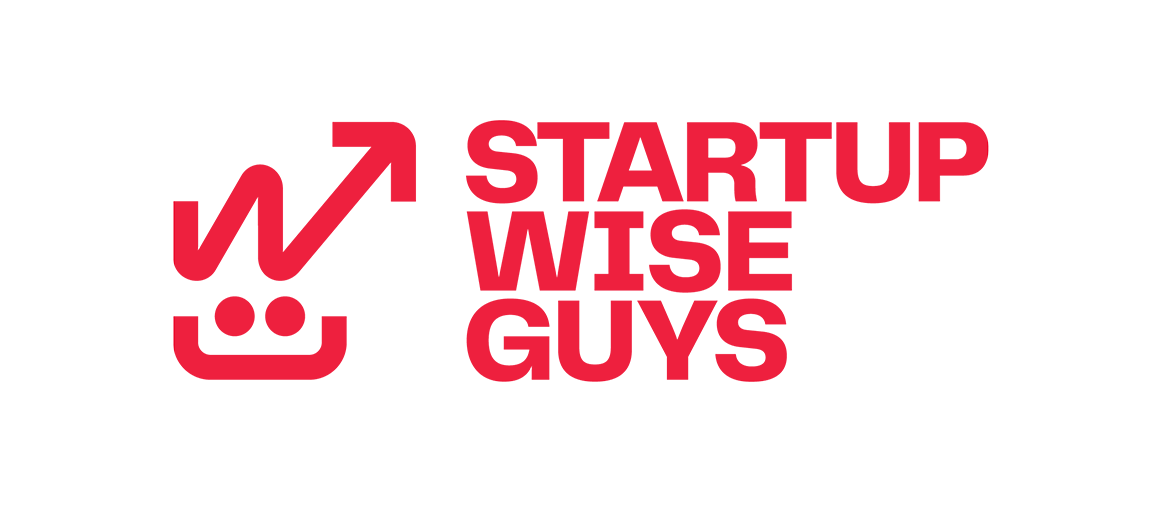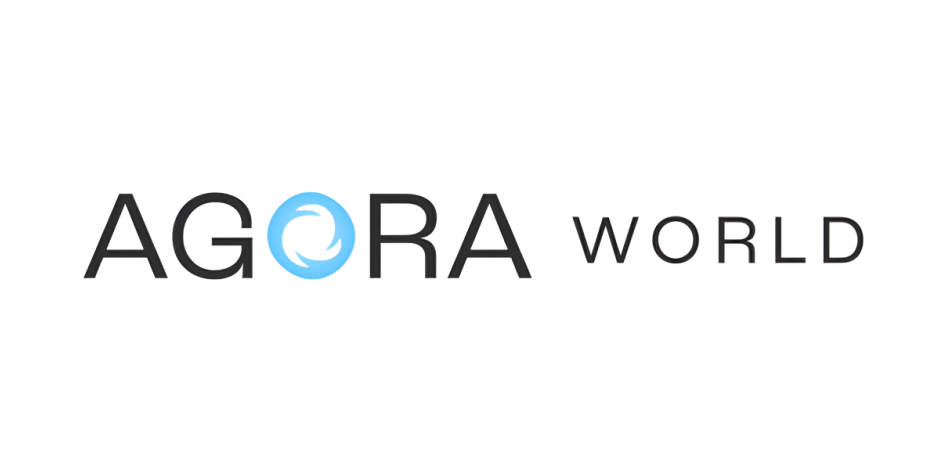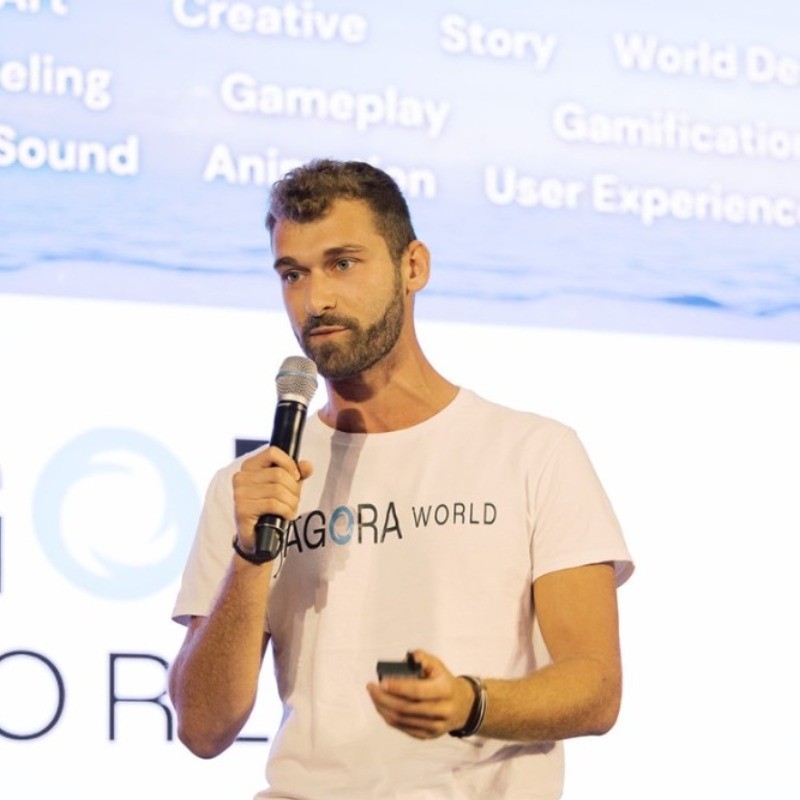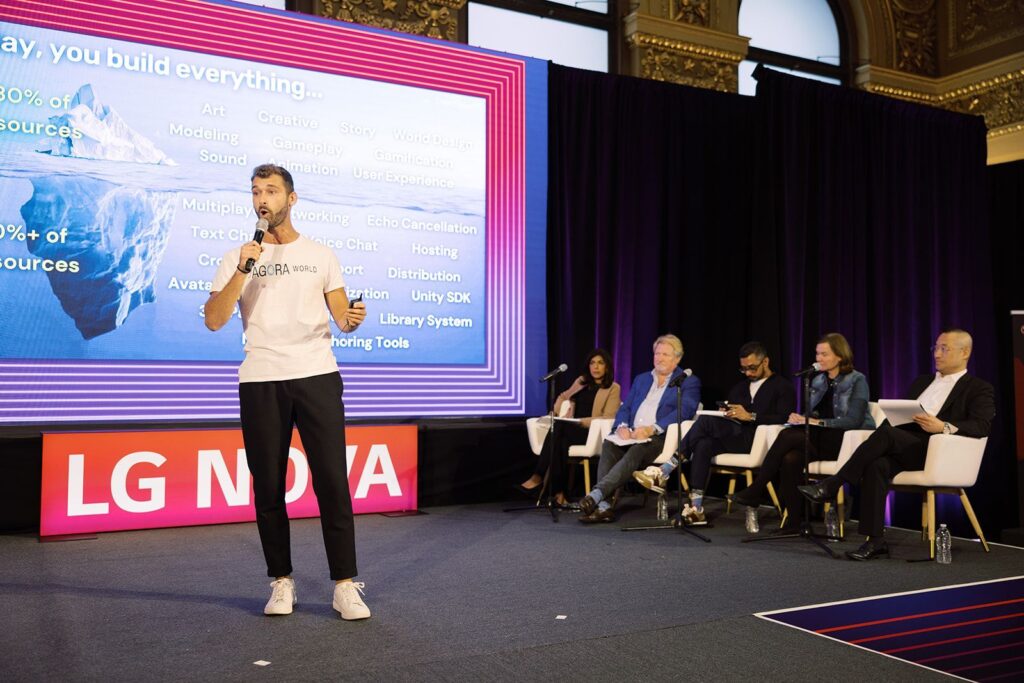Meet Ethan from Agora World
Q: Can you briefly introduce yourself and your startup?
A: Yeah. Hi, I’m Ethan Berg, the founder and CEO of Agora World. We’re creating Canva and WordPress for 3D. Our mission is to simplify 3D creation, enabling everyone to create their metaverse and immersive social experiences for brands, communities, and teams. I prefer not to use the term metaverse, though.
Q: How did you come up with this idea?
A: I started building this as a student at university with the initial goal of creating a meaningful experience for graduating friends. Traditional social media and communication tools like Zoom and FaceTime lacked the sense of reality and the creation of new memories. I aimed to build a VR shopping platform back in 2019, pre-COVID, even though I’m not a developer by background.
Q: Why VR shopping?
A: The idea was to strengthen bonds with friends leaving and continue making memories together. However, the challenge arose when I realized the limitations of creating 3D and VR experiences, especially for someone without a coding background. While tools like Canva or Wix exist for other purposes, the 3D and VR space was considerably limited, even with the emergence of AI implementations.
Picking Startup Wise Guys
Q: Why Startup Wise Guys?
A: We were advised to apply by Amy Peck, a significant influencer in the space. The decision to participate was made on the same day we received a compelling offer to purchase the company. What drew me initially was the way they communicated, their goals, their vision. I respect Cristobal and the team, and that played a crucial role in our decision.
Q: What stood out about Startup Wise Guys?
A: Listening to podcasts and absorbing their vision, particularly their perspective on Y Combinator not being something that every startup can participate in, resonated with me. The idea of democratizing and making a program like that accessible to the rest of the world aligns with our ethos. They addressed the question of what happens to the countless startups globally that don’t get chosen for Y Combinator but have opportunities to flourish. This, coupled with insights on running a business, such as the impracticality of the “Uber mentality” of raising billions without a sustainable plan, appealed to me. Not to mention their successful early investments in countless companies I’ve come to know and love such as Read Player Me and Bolt.
Q: Can you elaborate on the practical approach?
A: The emphasis on building something substantial but doing it practically was a key takeaway. They spoke candidly about the importance of having a practical dream, and actualizable in both the short-term and long-term. This resonated with the values my father instilled in me about responsible business growth. The goal is to build something huge, but the approach must be grounded and sustainable. We are glad we took the opportunity to work with Startup Wise Guys.
Q: How was the application process? Do you remember it at all?
A: The calls stand out in my memory, considering they are Europe-based, and I’m on the United States East Coast. They hadn’t accepted many teams from the US at that point. Our cohort had three teams from North America—two from the US and one from Canada. The initial calls, especially during the virtual kickoff before meeting in person, were challenging due to the time difference. The interviews for acceptance were from two to four am, and I vividly remember staying awake with coffee until midnight or waking up after a quick power nap. It was grueling, but in the end, it was worth it.
A Day in the Life during the Startup Wise Guys Program
Q: Can you describe a typical day during the program?
A: Mostly virtual, with three weeks in person at the beginning and about a week and a half at the end. Unlike most teams that went home, I stayed in Europe for the entire period. While not in person every day, I met people from various teams, cohorts, and their portfolios at different locations around Europe. It was a unique experience for me, considering others returned to their families and responsibilities. Being on the younger side, it was a decision I could make for myself, which turned out to be a good one. There was usually daily if not every other day programming which lasted a few hours. The sessions ranged from experts from various fields coming in to speak with us to group discussions with the other cohort members, pitches and every other week was a new sprint focused on a new topic so while we didn’t meet daily there were definitely things to accomplish every day. While rigorous, we went through a ton of vital exercises, some of which I had done before but was important to think through again. Some were more challenging than others so some weeks felt lighter than others and allowed me more time to focus on other aspects of our business. Ultimately, least for us and from our perspective, we ended the program is a better and more confident place than we started the program without a question.
Q: What did your typical day involve?
A: Meetings, or I don’t want to call them meetings—more like different types of programs. It varied every day or every other day. Some weeks were light, focusing on implementation where the goal was to put what we were learning into practice.
Q: How much funding did you receive from the accelerator, and was it in exchange for equity?
A: We received a hundred thousand euros for this program. The funding arrangement involved a convertible note.
The Program’s Value
Q: Beyond the funding, can you pinpoint a particular moment where the accelerator proved its worth?
A: The pivotal moment was understanding why we were doing what we were doing. Not just the what, but the why. The program emphasized the importance of starting with why, a concept I value from Simon Sinek. No one cares about what you do; they care about why you do it. Over time, I became more comfortable explaining our mission and quickly conveying it to others. That boost in clarity was invaluable.
Q: How did this impact your approach?
A: It allowed me to communicate more effectively, especially during elevator pitches. Being able to articulate our mission quickly and having people understand it was a significant achievement. Additionally, the exposure to their team, as well as people from their portfolio in various countries, broadened my learning. Being in Europe for six weeks to study abroad, courtesy of the program, provided insights into different business practices and cultures. This understanding, coupled with personal growth, contributed to becoming a better leader, ultimately benefiting our company.
Q: In what ways did the program contribute to personal growth?
A: The program not only benefited the company but also facilitated my personal growth. It provided an opportunity to learn and apply those learnings back to the company. Gaining insights into diverse business landscapes and cultures, both in Europe and through the network connections facilitated by the program, allowed me to become a more well-rounded leader, bringing back valuable lessons to our company.
Q: What would you say was one of the greatest challenges during the program, and how did you overcome it?
A: One of the challenges during the program was the two AMs and four AM calls. If you ask any of the North American founders, they’d likely say the same—it was difficult at the beginning. Late-night or early-morning calls were not ideal and posed a significant challenge.
Q: What achievements has your company made post-accelerator?
A: The major milestone for us is the upcoming beta launch on December 8th. Over the past eight months, our focus has been on crafting a better experience for creating 3D content. This involved creating a new UI/UX, implementing brand-new functionality, and completely automating certain aspects, including our sales pipeline.
Q: How would you describe the change in the growth trajectory of your startup since completing the accelerator?
A: Our growth potential timeline has significantly accelerated. The primary reason for joining the program was the recognition that there’s much I don’t know, and I wanted to learn. The program compressed a vast amount of learning into a short period. It was dense, and I would encourage others, especially from the US, to take the opportunity to stay. It was the most transformational experience, and I learned more in six months than I thought possible. The insights gained not only pertained to business but extended to personal growth, cultural understanding, and more. Being physically present there provided more value than a virtual experience. The program has undoubtedly expedited our growth timeline substantially.
Advice for Accelerator Applications
Q: Do you have any advice for those looking to apply to this accelerator or any other accelerator?
A: Understand that the application process may take a while, and getting denied is part of the journey. Treat each application as a learning opportunity. The questions asked in these applications are the same ones any investor would want to know, so your message becomes more refined with each application. For instance, keep a record of your applications, creating a Google Drive folder.
Over time, you can refer back to previous applications, see what worked and what didn’t, and make improvements. Persistence is key—getting a “yes” might not happen on the first attempt, and that’s okay. It’s a journey, and staying organized in your approach will be beneficial. Remember, it’s an incredible opportunity, and I can speak from my experience with Startup Wise Guys, which was a 10 out of 10.



